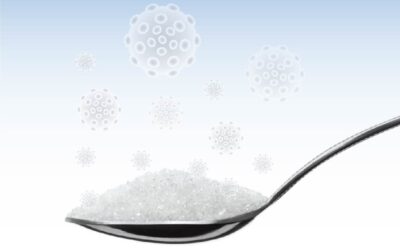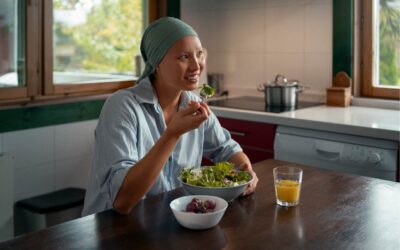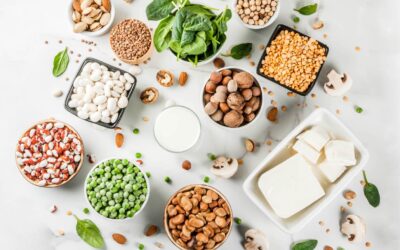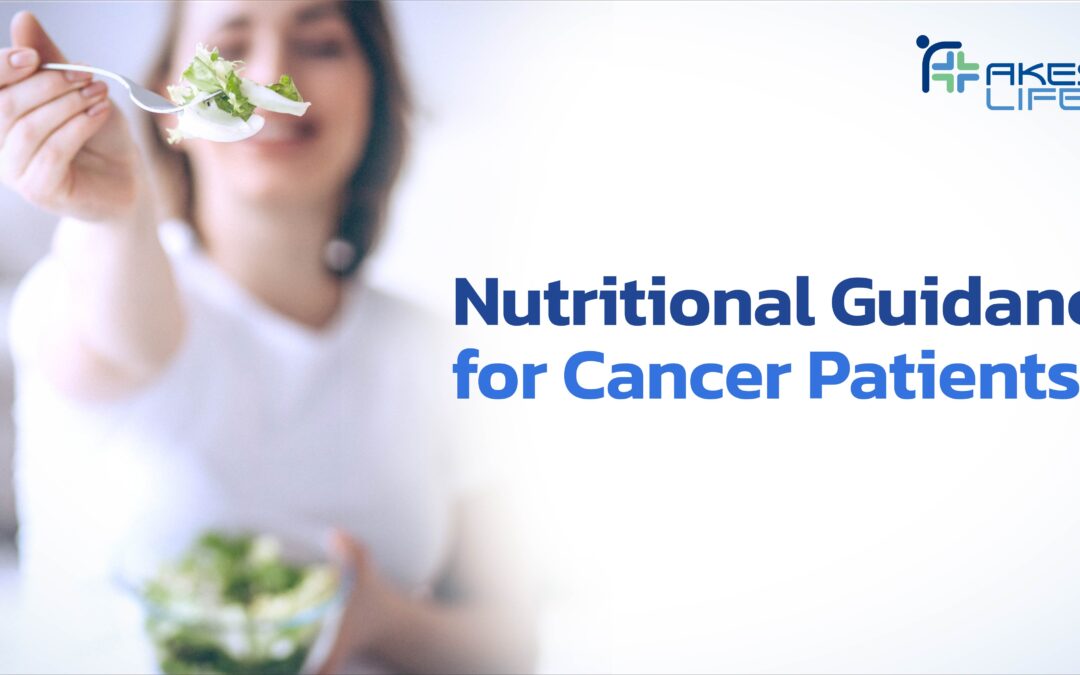Nutrition plays a critical role in preventing and controlling the progression of cancer, particularly colorectal cancer. Nutrients help provide energy to the body and prepare it for treatment—before, during, and after. At the same time, dietary strategies can limit the growth and division of cancer cells by depriving them of essential nutrients. While chemotherapy can destroy general cancer cells, it cannot eliminate cancer stem cells. However, depriving these cells of nutrients can target and eliminate them effectively.

Cancer cells primarily rely on three types of nutrients for energy, division, and metastasis. The most utilized nutrient is glucose. When the body receives glucose from simple sugars—such as white rice, white bread, sweetened beverages, honey, and sweet fruits—cancer cells absorb and use this glucose to rapidly divide. Elevated blood sugar levels after meals stimulate insulin secretion, which in turn accelerates cancer cell growth and promotes angiogenesis (formation of new blood vessels) to deliver more nutrients to tumors. Our recommendation is to avoid added sugars and instead choose complex carbohydrates with a low glycemic index, which have a smaller effect on insulin release.

The second key nutrient cancer cells utilize is glutamine—an amino acid found abundantly in meat, especially red meat. Red meat contains both high glutamine and iron levels, which further promote cancer cell division. Therefore, we recommend avoiding animal-derived proteins to limit energy supply and cell division, and opting instead for plant-based protein sources.
The third nutrient is fat. However, most cancer cells rely less on fat for energy.
Based on this metabolic profile, we recommend cutting off the nutrient supply to cancer cells by focusing on complex carbohydrates, plant-based proteins, and healthy fats.

General Recommendations
- Avoid milk, eggs, and dairy products such as all types of animal milk, yogurt, butter, and cheese, as they contain high levels of growth-promoting factors. Milk also contains casein protein, which can trigger allergies and inflammation.
- Avoid sugary foods and fruits, including sweetened drinks, high-fructose syrup (commonly found in sweet beverages), sodas (even those with artificial sweeteners), and fruit juices. You may consume limited amounts of less sweet fruits, as their fiber helps slow sugar and fat absorption, unlike juices.
- Avoid gluten-containing foods such as bread, pasta, pizza, pies (made from wheat flour), malt, and barley.
- Consume healthy fats such as nuts, olive oil, rice bran oil, and peanut butter.
- Eat gluten-free complex carbohydrates.
- Add antioxidant-rich spices to meals.
- Choose plant-based protein sources like legumes and nuts.
- Drink 250–500 ml of green vegetable juice (with or without fiber) daily to supply minerals and alkalize the body.
- Drink 1.5–2 liters of filtered water per day.
- Sleep 5–7 hours of deep rest nightly.
- Exercise: walking at least 10 minutes after meals helps with digestion.
- Reduce stress.
Recommended dietary structure: complex carbohydrates, plant-based proteins, and healthy fats.
Avoid: red meat, unhealthy fats, dairy, eggs, and gluten.

แนะนำรับประทานอาหารที่ประกอบด้วยคาร์โบไฮเดรตเชิงซ้อน โปรตีนจากพืช และไขมันดี
หลีกเลี่ยง เนื้อแดง ไขมันไม่ดี นม ผลิตภัณฑ์ที่ทำจากนม ไข่ และกลูเตน
Protein Recommendations
- Protein boosts white and red blood cells.
- Helps build muscle and restore body weight.
- Supports intestinal wall repair.
- Essential for enzyme production.
- 150g of cooked plant-based protein gives about 20g protein.
- A palm-sized piece of chicken/fish = 20g protein (consume 2–3x/week).
- Add 1–2 servings of plant-based protein powder per day.
- The rest of your protein intake should come from plants. Avoid red meat, eggs, and dairy.
- Aim for 15–25g protein per meal.
Recommended protein sources:
- Soft legumes: soybeans, white/red/black/green beans, chickpeas, lentils (100g = ~9g protein)
- Nuts: macadamia, walnuts, hazelnuts (1 handful = ~7g protein)
- Seaweed
- Plant-based protein powders
- Unsweetened plant milk like soy milk or homemade soybean drink (~7g protein per glass)
- Soy-based products: tofu, tempeh, natto

Healthy Fats
- Help reduce inflammation
- Provide a sustainable energy source
- Promote satiety
Sources of healthy fats:
- Olive oil, rice bran oil, sesame oil, MCT oil (1 tbsp olive oil = ~14g fat)
- Unsweetened plant-based milk
- Coconut milk and coconut oil
- 1 medium avocado = ~22g fat
- Nut butters
- Nuts (1 handful = ~16g fat)

Complex Carbohydrates
- Provide essential energy
- Sources: brown rice, riceberry, sweet potatoes, taro, pumpkin, adlay
- 1 serving of cooked rice (~1 ladle) = ~15g carbs + 2–3g protein
- High fiber content slows sugar absorption and reduces insulin response
- Avoid simple sugars: white rice, noodles, white bread, sugary foods and drinks
Recommended sources:
- Brown rice, semi-polished rice, riceberry
- Quinoa
- Sweet potatoes
- Taro
- Pumpkin
Low-sugar fruits (1–3 servings/day):
- Dragon fruit
- Berries: strawberry, blueberry, raspberry, gooseberry
- Passionfruit
- Rose apple
- Guava (bite-sized pieces)
- Kiwi
One fruit serving equals:
- 2–3 pieces of jackfruit or pomelo
- 4 mangosteen or rambutan
- 5–6 longan, lychee, or berries
- 6–8 cubes of watermelon, pineapple, or papaya
- ½ of banana, pomegranate, dragon fruit, or guava
- 1 small apple, kiwi, or passionfruit
Note: If consuming sweet fruits (not recommended), limit to 1 serving/day of 1 type.


